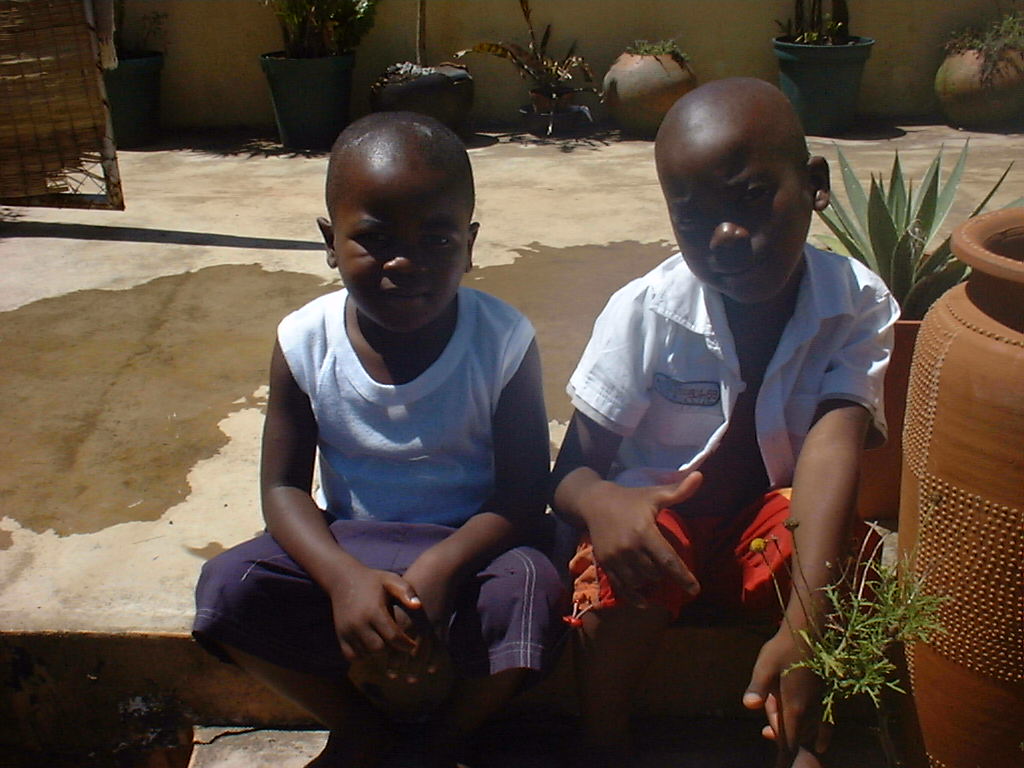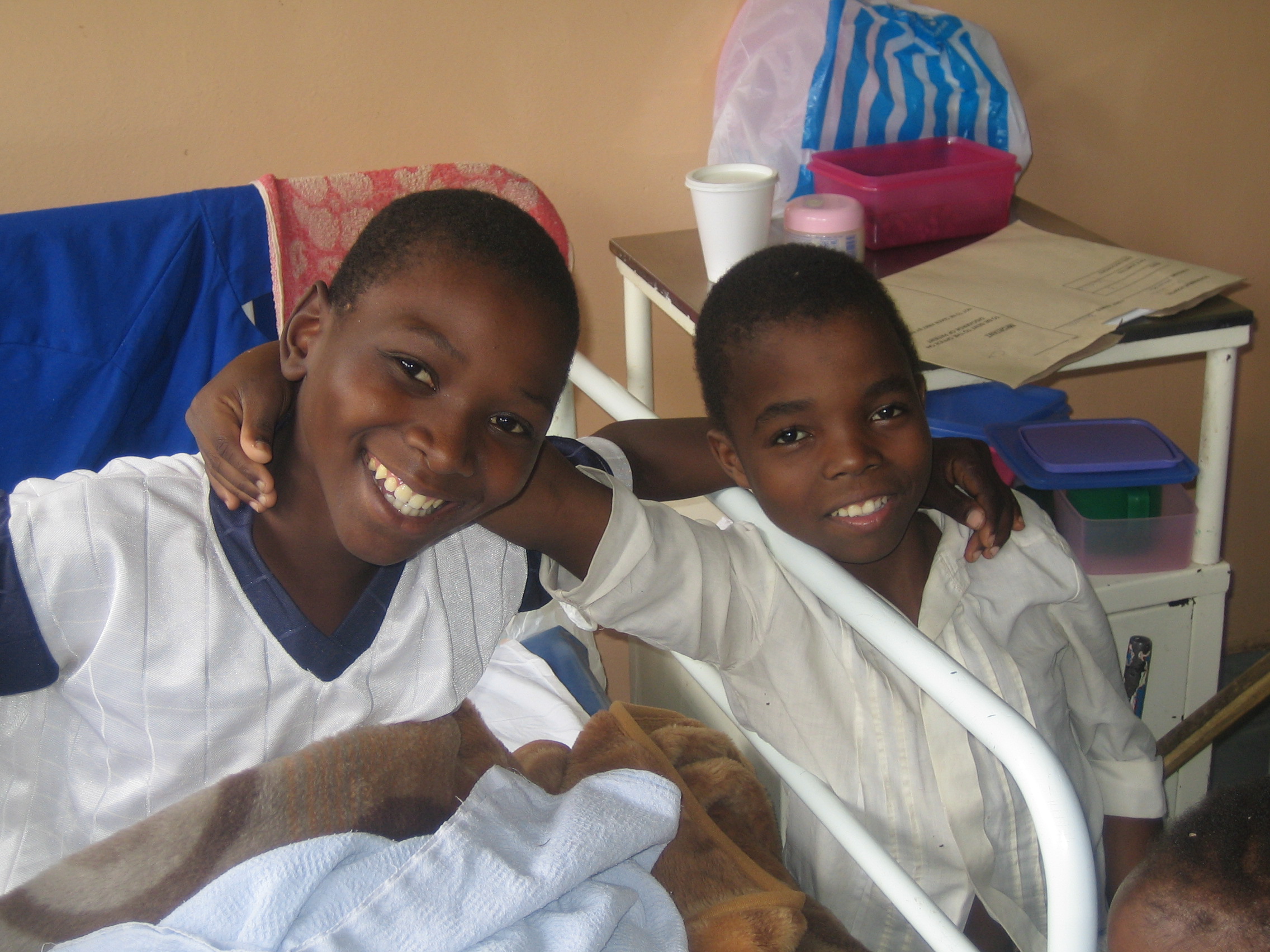







In 2006, I was living and working in Swaziland. I was teaching mathematics and science at a well-known school in the capital city, Mbabane. I also helped out with a community service project which fifth and sixth forms were involved in. At Mbabane General Hospital on the children’s ward, Ward 8, was a single room where abandoned babies, handicapped children and young adults were housed. There was a row of cots, a table and benches and a television in a metal cage that was left on permanently during the day. I took the school children down to the hospital on a Friday afternoon in a minibus and we usually took the residents of the ward to Coronation Park to play. These children weren’t sick for the most part but desperately in need of human interaction.
There is only one government children’s home in Swaziland, a country with tens of thousands of orphans. It does not take handicapped children. There are several private orphanages funded by evangelical Christian churches as well as organisations such as SOS Children’s Village and these do a great job. However there are not enough of them.
The young boy pictured above in all eight photographs was one such child and had been left at Ward 8 for almost two years with little contact from his family after he was orphaned in 2004. I found out a little about him. He always seemed lively and curious however it was obvious that he suffered from ill-health.








I knew that the future was bleak for him if I did not do something. Another teacher at the school had recently adopted a baby from the same place and so I thought why shouldn’t I do the same. I made arrangements to foster the boy as well as another boy who was in the same situation. So started a long journey.
I asked about the possibility of fostering at the hospital and they were happy for me to take the two boys home for the weekend. I did so. I very quickly realised that I would like this to become a permanent arrangement. Arrangements were made for me to visit the offices of Social Welfare. A very kindly lady called Babazile Sigwane was my social worker. After a couple of visits with her, she suggested that I go for adoption. I would not have done this had I not known that I could get British citizenship for my adoptees. I looked into this and as I was resident in Swaziland at the time, the adoption was the responsibility of the local authorities. Swaziland and the UK recognise each other’s adoptions and so after I adopted Sikhumbuzo as he was then known, I applied for British citizenship at the British High Commission in Pretoria in early 2007. The smaller boy in the top set of pictures had a more complicated situation. His father’s location was unknown and he had been physically abused by his step-mother. He had an open wound on his head that was healing when he was with me. He grew very attached to me and it was very sad that I was told that it would not be possible to adopt him. I tried my hardest but it was not allowed. The reason stated to me was that the father could not be located however it had been over six months since he had had any familiar contact so I think this was not a valid reason.
So I adopted my son in December 2006. In June, we left Swaziland for the UK. I had already secured a new job in central Europe due to start that September but in the meantime, we spent the summer in England staying at my mother’s place. In August, we both moved to Bratislava in the Slovak Republic where we remained for four years. My son attended the same school as I worked at. In 2008, I bought a house and things were looking good.
There was a happy ending to what happened to the other boy I could not adopt because he did find a place at the Lighthouse children’s home. It is a very well-run orphanage with a system of house mothers who are responsible for a small number of children. It is a very caring environment and the children grow up in a family atmosphere. I send regular parcels of clothes and books to him there and keep in touch.
What I couldn’t understand about the situation at Ward 8 was the fact that the nurses seemed so apathetic and disinterested. A lot of toys had been supplied and were stuffed into a cupboard and never taken out. The walls were bare. Food was very basic and the older children slept on old mattresses on the floor with no-one to ensure their safety at night. There was a playground at the back of the hospital just behind the room which housed these children and the grass was overgrown. Our plan at the start of the project was to cut the grass and paint the swings and slides so that they could be used. But this was discouraged as the nurses wanted us to take the babies off their hands in the afternoon.
Hello
I would really love to adopt in Swaziland. Can we communicate please ?
Yes of course. Alan.evans111@gmail.com though I believe overseas adoptions in Swaziland are still not permitted.
Thank you so much . I am from there originally but I have lived in the UK for 20 years . Reading your story took me back home . I know ward 8 way too well. I will email . Thanks for getting back.
Nosi